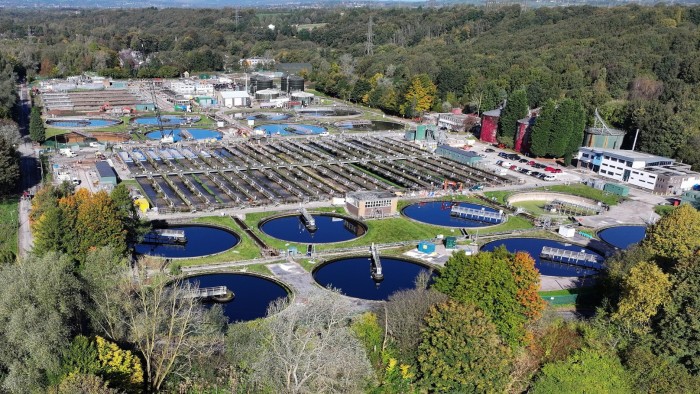Stay informed with free updates
Simply sign up to the Utilities myFT Digest — delivered directly to your inbox.
Listed UK water companies are paying more in dividends than their privately owned peers for the first time since privatisation, according to analysis by the Financial Times.
United Utilities, Severn Trent Water and Pennon Group, which are all publicly traded in London, have paid £3.6bn in dividends to shareholders since 2020, which is 61 per cent of the total for the UK’s water sector during the period.
This is the first time the quoted segment has paid out the majority of dividends since Margaret Thatcher’s Conservative government privatised the water industry more than 30 years ago.
By comparison, listed companies were responsible for just a third of the sector’s total dividends for 2015-19, the FT found, with the remaining 67 per cent paid out by privately owned water companies.
The findings come as Ofwat, the sector regulator, is endorsing public ownership of water companies as a way of improving performance and aiding transparency. David Black, Ofwat chief executive, told MPs in November that he wanted to “encourage companies to list on the stock market”, and that there was a case for recovering the cost of listing companies from consumers.
However, dividend payments by both public and private water companies are contentious because the utilities have drawn public and political ire for a series of outages and sewage being pumped into rivers and coastal waters.
David Hall, visiting professor at the University of Greenwich, said that “all of the water companies’ income comes from customer bills and by spending so much on dividends they are clearly reducing the cash available for infrastructure improvements — the result of which we can see in water outages, leakage and sewage pollution”.
Others say that a record of shareholders reaping dividends could attract more investment into the sector.
Colm Gibson, managing director at the Berkeley Research Group consultancy, said strong dividends made it “easier to raise new equity, which would help finance capital investment over the next few years”.
Overall, the English water companies paid out £83bn in dividends over the past 34 years, including more than £18bn in the past decade, updated FT research found. They also accrued £74bn in debt over the three decades. The utilities were transferred without borrowings to private ownership under Thatcher’s government.
The £83bn payout is more than a third of the £230bn the companies spent in the same three decades on infrastructure. No reservoir has been built in the UK since 1992, although at least three are now being planned.
Rules introduced by Ofwat in May 2023 restrict water groups from paying dividends if they put companies’ financial resilience at risk or if utilities underperform on social or environmental metrics. Thames Water — the UK’s largest water company, which is teetering on the brink of insolvency and is trying to stave off temporary renationalisation — landed Ofwat’s first fine for breaching such rules in December.
The £3.6bn paid out by the three quoted companies between 2020 and 2024 included almost £1.7bn by United Utilities, which has been criticised for sewage outflows in England’s picturesque Lake District region. Severn Trent paid out £1.3bn while Pennon, owner of South West Water and Bristol Water among others, paid out £700mn. The three companies invested £11.5bn in infrastructure over the same period, according to Ofwat, or 32 per cent of the total for the sector.
United Utilities said: “Dividends paid are a function of the returns earned by the company in the past, whereas capital expenditure reflects the investment requirement set out by regulators for the future. Drawing any causal link between dividends paid and capital investment is misleading.”
All three listed water companies have pledged to raise dividends at least in line with inflation.
The FT research is based on data provided by Ofwat, inflated to 2023-24 prices using the financial year average CPIH. The regulator does not adjust dividend figures for the 34-year period for inflation, giving it a nominal cumulative total for the period of £53.2bn.
Ofwat said: “Whilst the water business makes up a large proportion of the listed companies’ value, there are other activities that may be supporting dividends. Ofwat does not regulate those activities and therefore does not hold the data on them.”
Pennon Group said: “We know more than ever before about the growing concerns from customers about dividends. As we continue to accelerate the changes we all want to see, dividends are not made at the cost of greater investment.”
Severn Trent declined to comment.
Read the full article here

